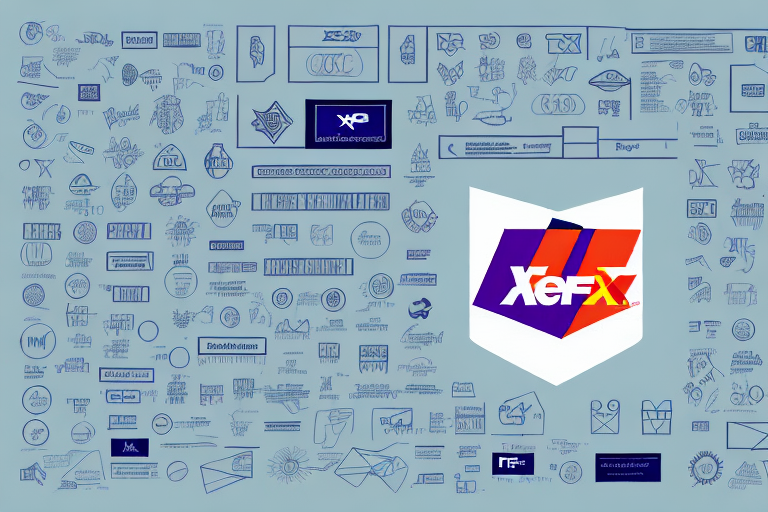Understanding Shipping Exceptions in FedEx Operations
Shipping exceptions are unforeseen occurrences that disrupt the standard delivery process of packages. For a global logistics leader like FedEx, managing these exceptions efficiently is crucial to maintaining customer trust and operational integrity. This article explores the nature of shipping exceptions, their common causes, the impact on customers and businesses, and how FedEx addresses these challenges using advanced technology and best practices.
Common Causes of Shipping Exceptions
Incorrect Routing and Labeling Errors
One of the primary causes of shipping exceptions is incorrect routing, often stemming from mislabeled packages or damaged shipping labels. Such errors can divert packages to unintended destinations, delaying delivery times. According to FedEx logistics reports, label accuracy is critical, and even minor discrepancies can lead to significant delays.
Severe Weather Conditions
Extreme weather events, including hurricanes, snowstorms, and floods, frequently disrupt shipping schedules. These conditions can halt transportation networks, causing widespread delays. The National Centers for Environmental Information provides data indicating that weather-related shipping delays have increased by 15% over the past five years.
Customs and Regulatory Issues
International shipments are subject to customs inspections and regulatory compliance. Incomplete or incorrect documentation can lead to packages being held or rejected by customs officials. Ensuring all necessary paperwork is accurately completed is essential to avoid such exceptions.
Package Damage and Handling Errors
During transit, packages may be mishandled, resulting in damage that necessitates returns or reshipments. Proper packaging and handling protocols are vital in minimizing these risks. FedEx has implemented rigorous training programs to reduce the incidence of handling-related shipping exceptions.
Impact of Shipping Exceptions on Customers and Businesses
Customer Satisfaction and Trust
Shipping exceptions can significantly affect customer satisfaction. Delays or lost packages may lead to frustration and a loss of trust in the shipping provider. A PwC survey reveals that 73% of consumers consider reliable delivery as a key factor in their satisfaction with logistics services.
Business Operations and Revenue
For businesses, shipping exceptions can disrupt supply chains, leading to inventory shortages and lost sales opportunities. Timely delivery is critical for maintaining business operations, especially for e-commerce and just-in-time manufacturing models.
FedEx's Strategies for Managing Shipping Exceptions
Advanced Tracking and Monitoring Systems
FedEx employs sophisticated tracking systems that provide real-time visibility into the status of each shipment. These systems utilize GPS and RFID technologies to monitor package locations and anticipate potential delays.
Proactive Customer Communication
Effective communication is essential during shipping exceptions. FedEx offers services like Delivery Manager, allowing customers to receive timely notifications and make informed decisions, such as rerouting packages or scheduling redeliveries.
Dedicated Customer Service Support
FedEx maintains a robust customer service infrastructure to handle inquiries and resolve shipping exceptions swiftly. Trained professionals are available 24/7 via phone, email, and chat to assist customers in addressing delivery issues.
The Role of Technology in Preventing Shipping Exceptions
Machine Learning and Predictive Analytics
FedEx leverages machine learning algorithms to analyze historical shipping data and predict potential exceptions. This proactive approach enables the company to mitigate risks before they impact deliveries. According to a McKinsey report, predictive analytics can reduce shipping exceptions by up to 20%.
Autonomous Delivery Solutions
Innovations such as drones and autonomous vehicles are being integrated into FedEx's delivery network to enhance efficiency and reduce dependency on traditional transportation methods, especially in remote or hard-to-reach areas.
Best Practices to Minimize Shipping Exceptions
Accurate Documentation and Labeling
Ensuring that all shipping documents are complete and accurate is fundamental to preventing exceptions. Clear and legible labels reduce the risk of routing errors and ensure seamless transit through various checkpoints.
Enhanced Packaging Techniques
Using appropriate packaging materials and methods protects packages from damage during transit. Businesses should adhere to FedEx's packaging guidelines to minimize the likelihood of handling-related exceptions.
Regular Shipment Tracking
Consistent tracking of shipments allows businesses and customers to identify and address potential issues promptly. Utilizing FedEx's online tracking tools provides real-time updates and facilitates proactive management of deliveries.
Legal Implications and Liabilities
FedEx's liability policies define the company's responsibility for delays or loss of packages. Generally, FedEx is liable for incidents caused by negligence but may exclude liability for events beyond their control, such as natural disasters or acts of terrorism. It is crucial for customers and businesses to review FedEx's terms and conditions to understand the extent of coverage and liability.
For more detailed information on FedEx's liability policies, refer to the FedEx Terms and Conditions.
Conclusion
Shipping exceptions are an inherent challenge in the logistics industry, but with effective management strategies, their impact can be minimized. FedEx continues to invest in technology and customer service initiatives to enhance delivery reliability and maintain its reputation as a leading global courier service. By understanding the causes of shipping exceptions and implementing best practices, both customers and businesses can navigate and mitigate the disruptions these exceptions may cause.




















